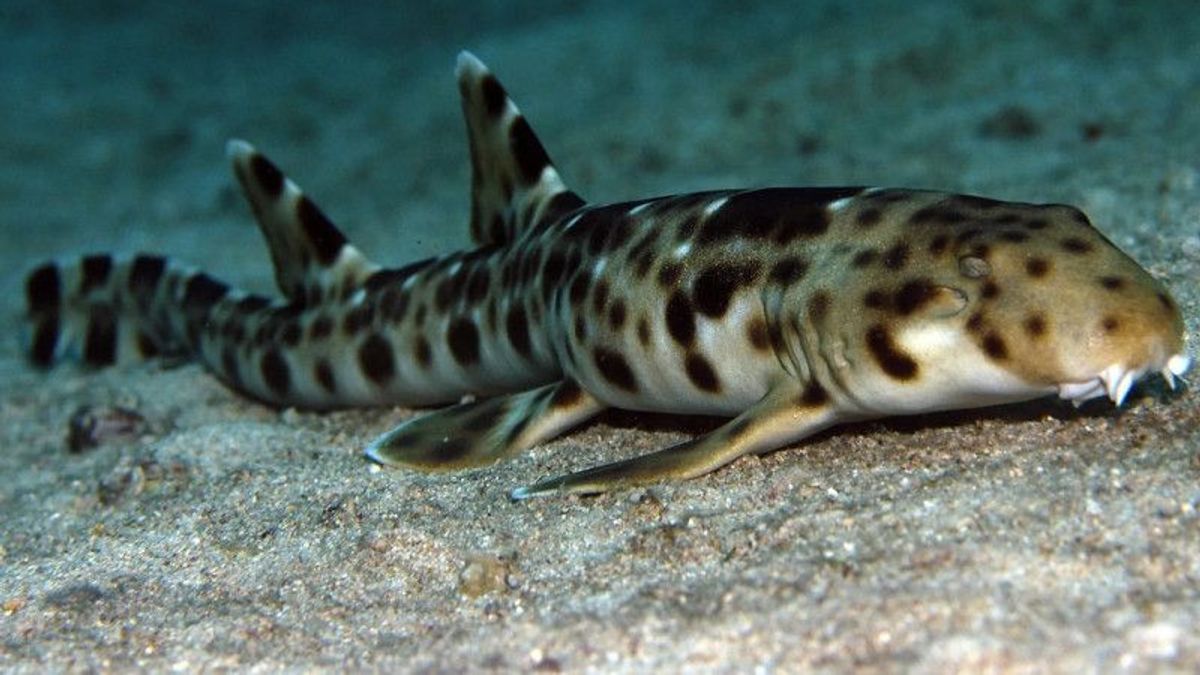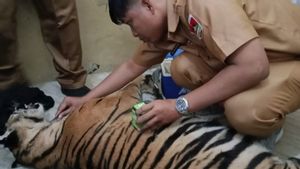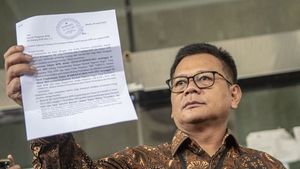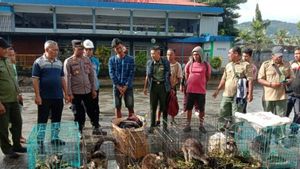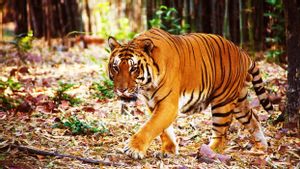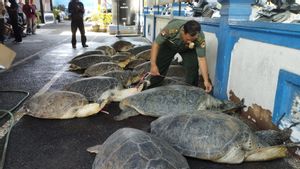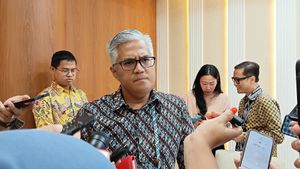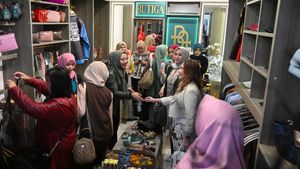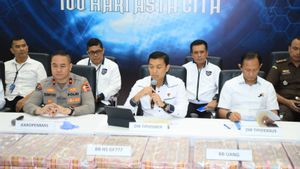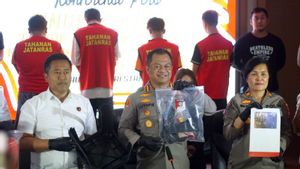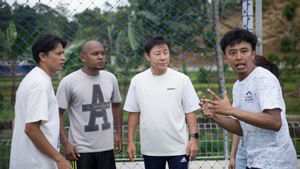JAKARTA - A number of marine researchers have revealed that marine sand mining activities can threaten the habitat of the Hiu Run and Pari Manta species, which have protected status because they are threatened with extinction. Researchers from the Institute of Marine Science, University of Auckland, New Zealand Edy Setyawan said that dredging of marine sand can make it difficult for the manta to find food due to cloudy sea water. "The impact of sea sand dredging does not only disturb the habitat of manta rays, but disturbs the habitat of all living things in the sea. Specifically for manta rays, it is closely related to coral reefs," said Edy Setyawan, quoted by ANTARA, Thursday, June 8.
Edy revealed that the distribution of manta rays in Indonesia is quite evenly distributed from Aceh to Papua. TheUSH-eating fish are widely found in Derawan, Nusa Penida, Komodo Island, and Raja Ampat. When there is dredging of sand and sedimentation covering coral reefs, sediment will damage the habitat of manta rays, such as the cleaning station. In fact, the cleaning station is urgently needed by the manta session to keep themselves clean so that they stay healthy. "Manta tourism not only eats on the surface, but also eats on the seabed. They eat in many places," said Edy.The manager of the Conservation Strategy for Kharismatics and Elasmobranch Species from Indonesian Conservation Iqbal Herwata said that if the dredging of sea sand was carried out in eastern Indonesia, the sedimentation mining activity would have an impact on the running shark habitat.
Moreover, dredging is carried out in areas below 20 meters, their habitat will be damaged. "Except for dredging, it may not be too significant in disrupting the working shark population," explained Iqbal.
SEE ALSO:
Currently, there are nine shark species running in the world. Of the nine species, six species were found in Indonesian waters. The Indonesian government has set a full protection status for the demersal shark measuring below 100 centimeters.
The English, Chinese, Japanese, Arabic, and French versions are automatically generated by the AI. So there may still be inaccuracies in translating, please always see Indonesian as our main language. (system supported by DigitalSiber.id)
